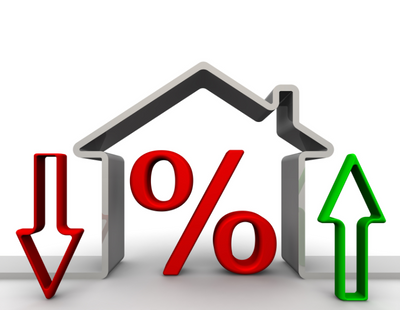Another week, and another warning that we are on the brink of a house price crash.
This time, the sense of panic emerged via new data released by Halifax.
Now, let's be clear, there are reasons to be concerned.
House prices fell last month for the first time in more than a decade.
But it led to many commentators saying that further gloom is expected as 'storm clouds gather' over the market.
Are they right?
There’s no doubt that the market is in a precarious position. The repeated interest rate rises, which are expected to carry on through the Summer, haven’t helped.
But are we on the verge of a crash? No, I really don’t think we can say.
The reality is that we are actually seeing two things.
One, this is a readjustment following the vastly over-inflated house price rises we witnessed during the pandemic.
Two, the market is reacting to the economic environment which exists. Householders are nervous. They are being hit left, right and centre with rising costs.
Moving, for many, just feels too risky right now. Until that changes prices are likely to continue to fall.
But even if they were to carry on reducing at the rate we’ve seen it wouldn’t be a disaster. Rain clouds, yes. Storms, no. The market will cope. It’s coped with darker clouds.
Landlord losses
What worries me more right now is the rental sector. That’s where the thunder and lightning is. Landlords are continuing to quit in record numbers.
Last week it was reported hundreds of thousands are set to sell up. This is an accurate reflection of what I’m hearing on the ground.
Rates are climbing, regulation is tightening and maintenance costs are soaring. Given the numerous hits taken by landlords of late, many are making the decision to sell up, not least because they will be quitting close to the top of the sales market. This is a bad time to be a tenant.
Inheritance tax
The third story that caught my eye this week was the latest debate on whether inheritance tax should be axed.
This seems to come up every few years, and it is a topic which often generates lively discussions.
Inheritance tax exerts an influence on the UK property market, albeit within a broader context shaped by multiple factors.
It can lead to adjustments in property prices, impact investment decisions, affect family homeownership dynamics, and drive estate planning strategies.
However, it's important to note that inheritance tax is just one piece of the puzzle, with other economic factors and market conditions also playing significant roles in shaping the property landscape.
As with any tax policy, it's crucial to strike a balance that encourages economic growth and fairness while considering the potential consequences for homeowners and the wider market.
It is perhaps more than any other tax, something that is generally favoured by those who do not pay it and resented by those that do.
Taxing the estate of somebody who has likely paid tax throughout their life to accumulate the wealth required to be liable can be seen as grossly unfair. However, the Government requires a certain amount of money from the population to fund our essential services such as The NHS, defence, schools and transport infrastructure.
The question is, if IHT is reduced or abolished altogether, who will pay more to make up the shortfall? Relatively wealthy people who have died and have no need for their money appear to be an easy target and are certainly very unlikely to complain.
But rather like predictions of a house price crash, when it comes to ministers actually ever scrapping this tax, I’ll believe it when I see it.












.png)


.png)




Join the conversation
Jump to latest comment and add your reply
If a 'crash' is assumed to be a rapid fall in property prices of 20% plus, then I concur that this seems unlikely (at present). However, I expect that a more gradual downward drift in prices will continue for the next couple of years - in other words, the market is stagnating not crashing (at present). Average house prices need to fall in nominal terms to realign more realistically with average incomes - indeed, even a fall to £240k would still leave the ratio stretched by historical metrics. My patch of the north-west is witnessing overall sales slowing considerably, particularly at the top end where prices remain over-inflated. As economic reality bites harder, property prices will fall further. Note, I qualified the above '(at present)' because my views are based on existing economic and geopolitical factors, and, sadly, since I believe things may get worse before they get better, a full-scale property market 'crash' cannot be ruled out.
Please login to comment